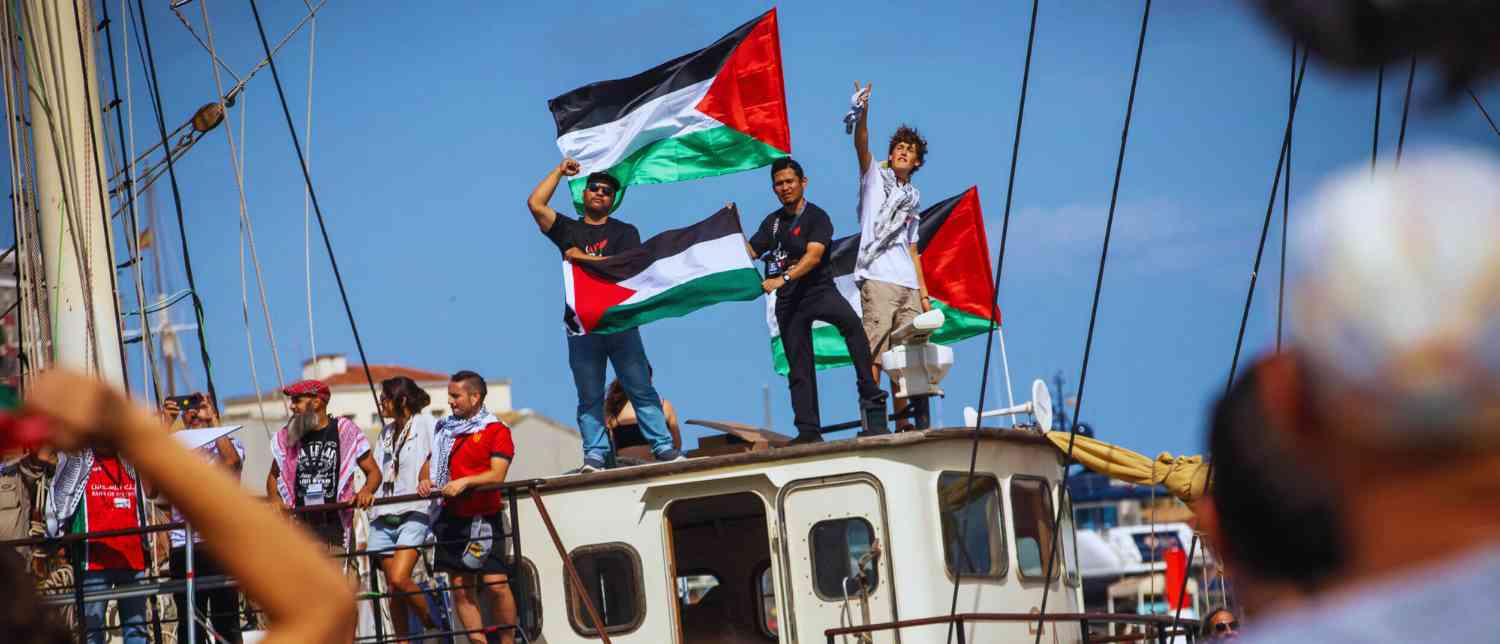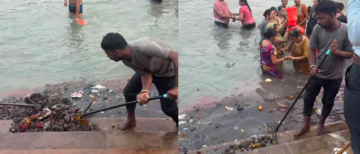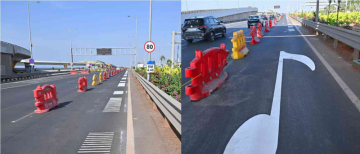The Global Sumud Flotilla (GSF) is a group of over 50 boats from more than 44 countries carrying humanitarian aid and activists sailing to Gaza. Their goal is to break the Israeli blockade of Gaza, which restricts the flow of goods and aid into the region. The flotilla carries food, medicine, and volunteers including doctors, journalists, and campaigners aiming to deliver help to the people of Gaza.
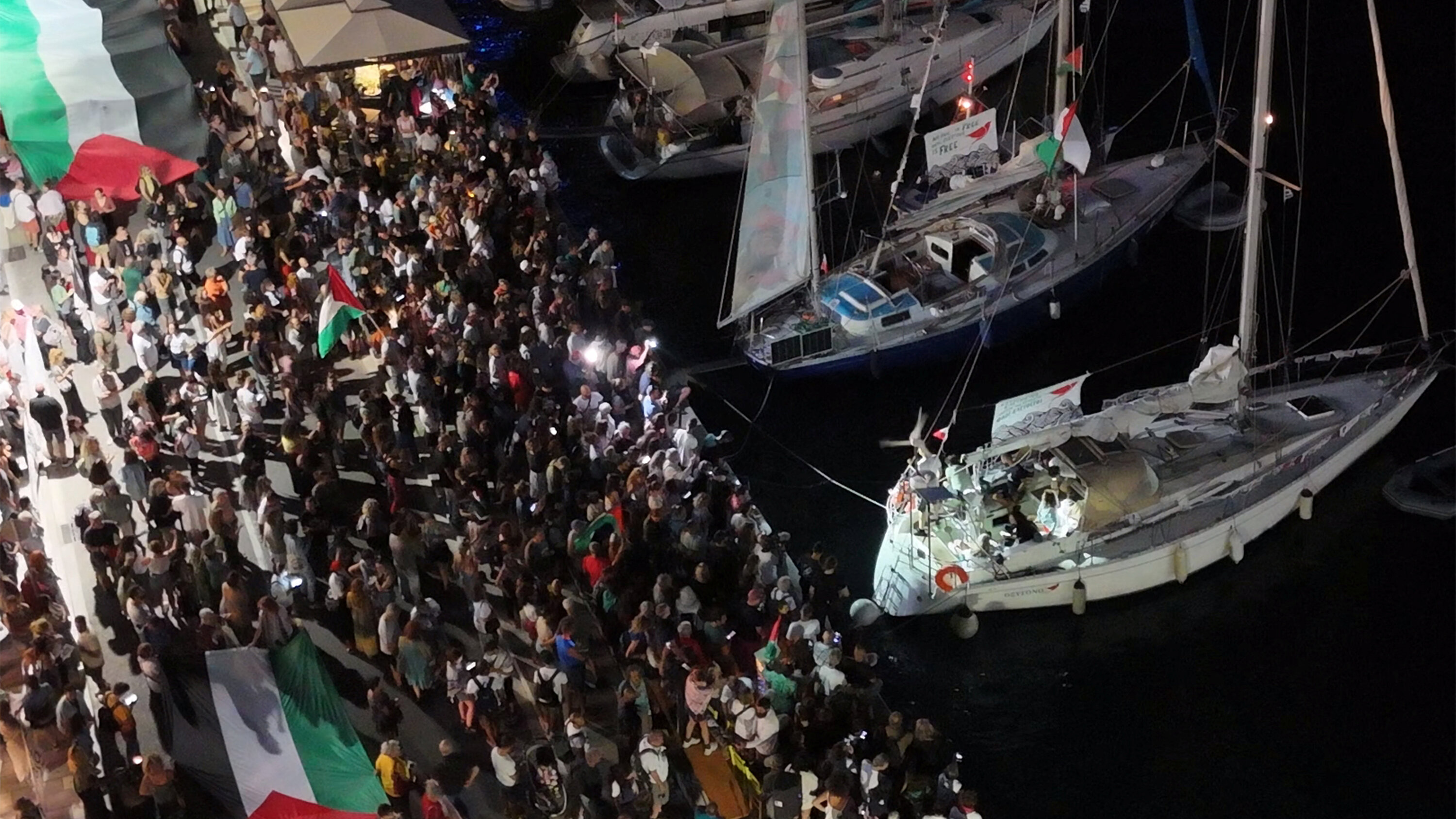
However, the flotilla has faced repeated attacks and harassment during its journey in September 2025. Activists report that their boats were targeted by multiple drone strikes and unexplained explosions while sailing in international waters south of Greece and near Tunisia. These attacks caused damage to the vessels, disrupted communications, and greatly unsettled the crew, but so far no casualties have been reported. Videos shared by the flotilla show small explosions and fires on some boats, believed to be caused by objects dropped from drones. While flotilla organizers say the attacks are intimidation tactics, Tunisian officials have disputed the drone claims, suggesting some incidents might have originated from within the boats themselves.
This flotilla is part of a longer history of humanitarian ships trying to reach Gaza who have often been intercepted or attacked by Israeli forces over the years. Israeli authorities accuse the flotilla organizers of links to Hamas and other groups and consider the flotilla a threat to their security. They have offered the aid to be unloaded at Israeli ports instead and rejected the flotilla’s mission to break the blockade at sea. In contrast, the flotilla and its supporters insist that their mission is peaceful and lawful under international humanitarian law. They call the blockade illegal and argue that Palestinians have a right to receive aid and control their waters.
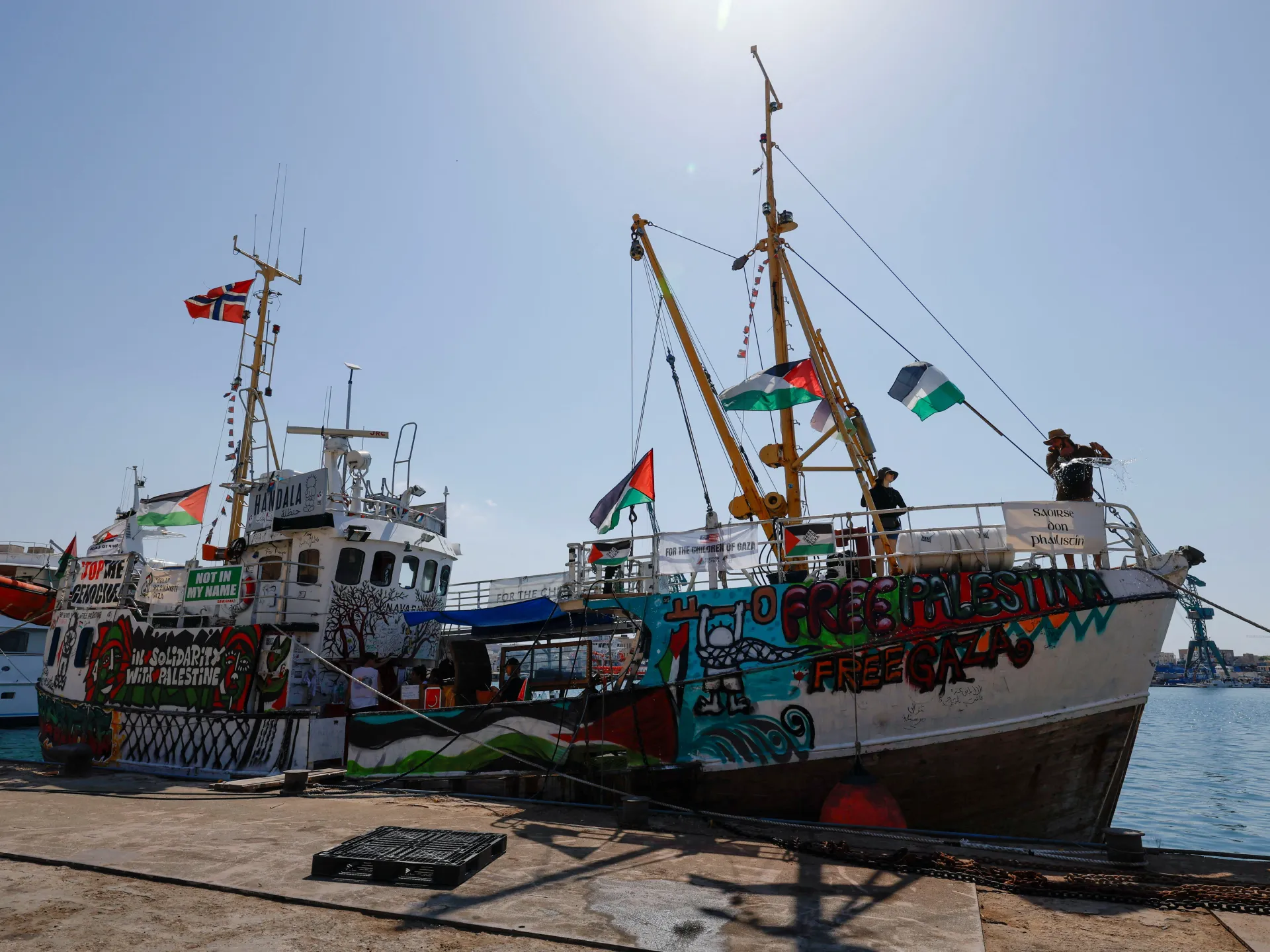
The situation exposes a complex and deeply sensitive geopolitical conflict where humanitarian aims, security concerns, and political interests strongly collide. The flotilla's purpose of delivering aid is widely acknowledged as important amid Gaza's ongoing humanitarian crisis caused by war and blockade. Yet the presence of activists and the challenge to Israeli naval control raise concerns of escalation, legal questions on maritime rights, and risks to safety. The international community remains divided with some backing the flotilla’s humanitarian initiative and others supporting Israel’s blockade as a security measure.
This episode highlights the difficulty of ensuring aid reaches vulnerable populations caught in conflict zones, especially when such efforts intersect with broader political conflicts. It raises critical questions around freedom of navigation, protection of civilians, and how international law applies in contested waters. The flotilla’s ongoing mission under continued threat is emblematic of the tense and fragile conditions in the region, where every attempt at humanitarian relief can become a flashpoint.
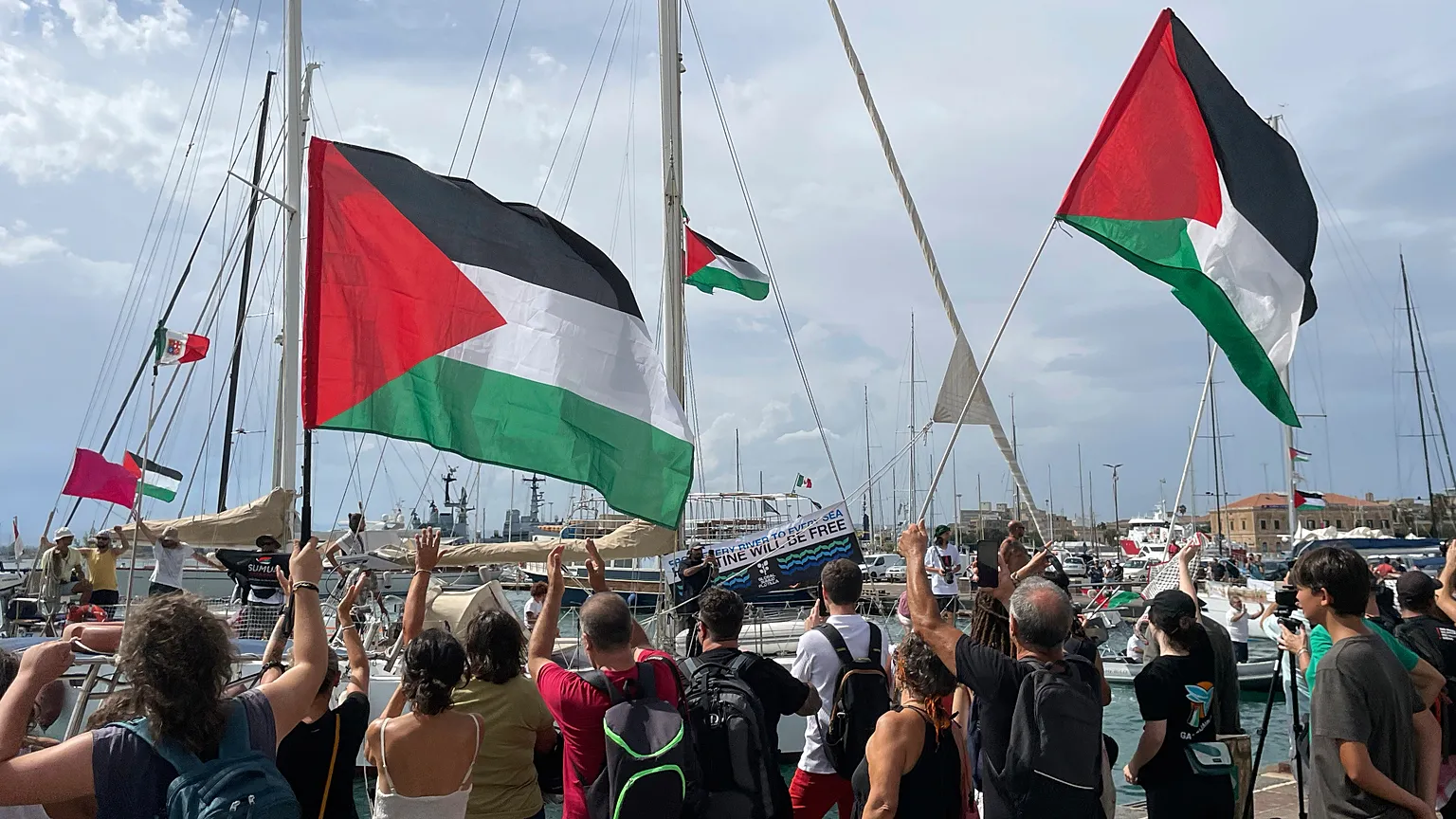
In conclusion, the attacks on the Global Sumud Flotilla reflect the complexities of providing humanitarian assistance in war-torn areas controlled by hostile parties. The flotilla's steadfast determination symbolizes the human desire to help those in need, while the risks underscore the challenges posed by political conflict and security concerns. The world watches closely as efforts continue to navigate these competing realities with the hope of delivering relief without violence or further escalation. This incident reminds us how critical it is to find peaceful and lawful ways to support those suffering in conflict zones like Gaza while respecting international laws and sovereignty.
With inputs from agencies
Image Source: Multiple agencies
© Copyright 2025. All Rights Reserved. Powered by Vygr Media.

